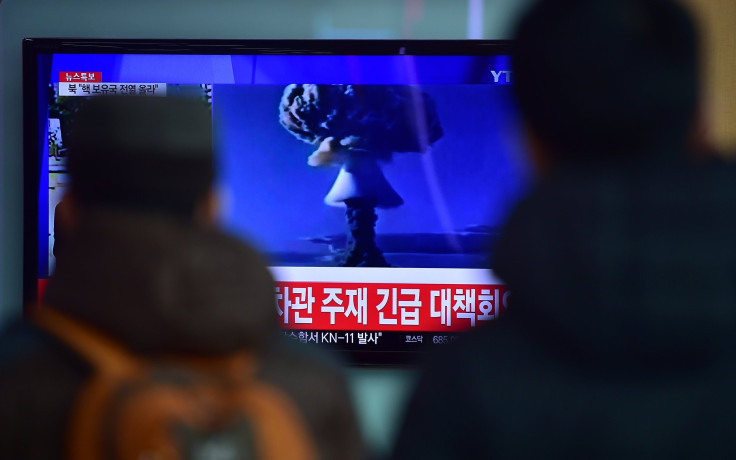Preparing For Nuclear War: CDC Organizing Public Health Response Briefing

The Centers for Disease Control and Prevention (CDC) announced that it would be organizing a briefing on Jan. 16 on how to be prepared in case of a nuclear strike.
In a notice on its website dated Dec. 27, 2017, the nation's health protection agency headquartered in Atlanta, Georgia, said it would share what public health programs have done to prepare for the catastrophe in the event of a nuclear strike.
CDC stated that preparation for the event would decrease the likelihood of illnesses due to exposure to radiation and said public health would play a key role in responding to a nuclear attack along with the immediate responses of the federal, state, and local agencies.
It also aimed at discussing how planning and preparation efforts for a nuclear detonation were similar and different from other emergency response planning efforts.
"While a nuclear detonation is unlikely, it would have devastating results and there would be limited time to take critical protection steps," the notice on the CDC website read.
"Despite the fear surrounding such an event, planning and preparation can lessen deaths and illness. For instance, most people don’t realize that sheltering in place for at least 24 hours is crucial to saving lives and reducing exposure to radiation," the CDC said.
The session will be a part of a webcast series by the organization called Grand Rounds and among the presenters for this month’s upcoming presentation on protection measures during a nuclear detonation are radiation experts, emergency response officials, and Deputy Director and Chief Medical Officer of the Office of Public Health Preparedness and Response at CDC, Dan Sosin.
CDC’s briefing comes amid increasing threat of a nuclear attack by North Korea with its leader Kim Jong Un threatening in his New Year’s speech: "The entire mainland of the US is within the range of our nuclear weapons and the nuclear button is always on the desk of my office. They should accurately be aware that this is not a threat but a reality."
U.S. President Donald Trump responded to Kim’s statement tweeting Wednesday he too had "a Nuclear Button, but it is a much bigger & more powerful one than his, and my Button works!"
The tensions between the two countries have been rising steadily and recent years have seen North Korea display increasing strength in its nuclear weapons and ballistic missile development. North Korea in another provocative statement threatening the U.S. with nuclear war claimed in November that it had tested a new type of intercontinental ballistic missile, topped with a "super-large heavy warhead," which is capable of striking the U.S. mainland.
After the launch, Kim said North Korea had "finally realized the great historic cause of completing the state nuclear force," according to reports.
While several authorities in the U.S. claimed that a nuclear war with Pyongyang was unlikely, Hawaii also launched an effort to prepare for an attack.
TV commercials warned the state’s 1.4 million residents to "get inside, stay inside" if a bomb fell and even tested a nuclear attack warning siren.
© Copyright IBTimes 2024. All rights reserved.





















